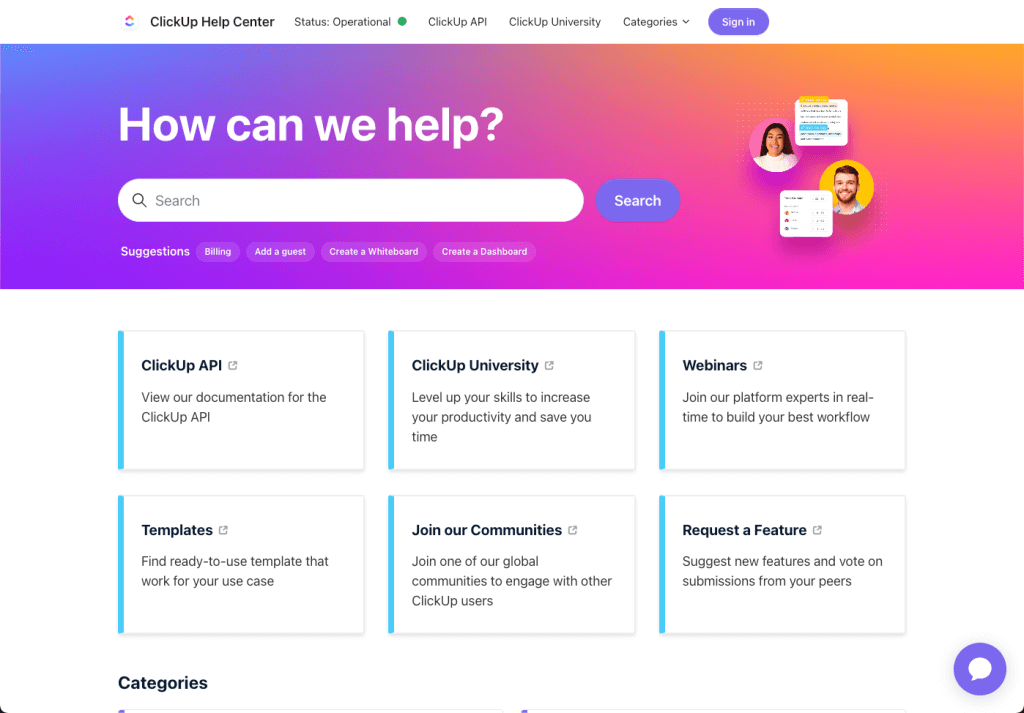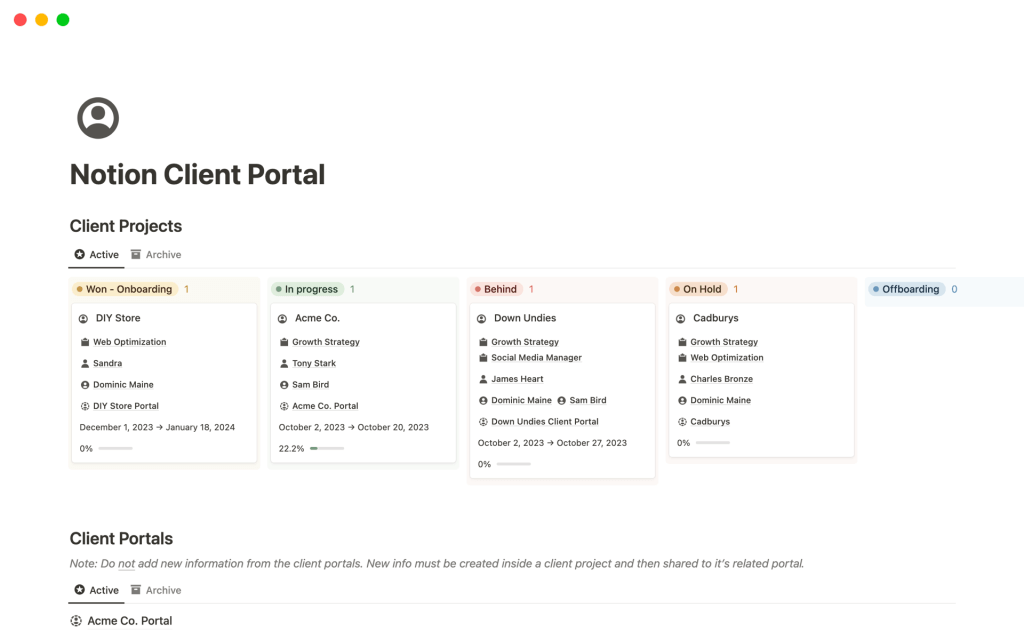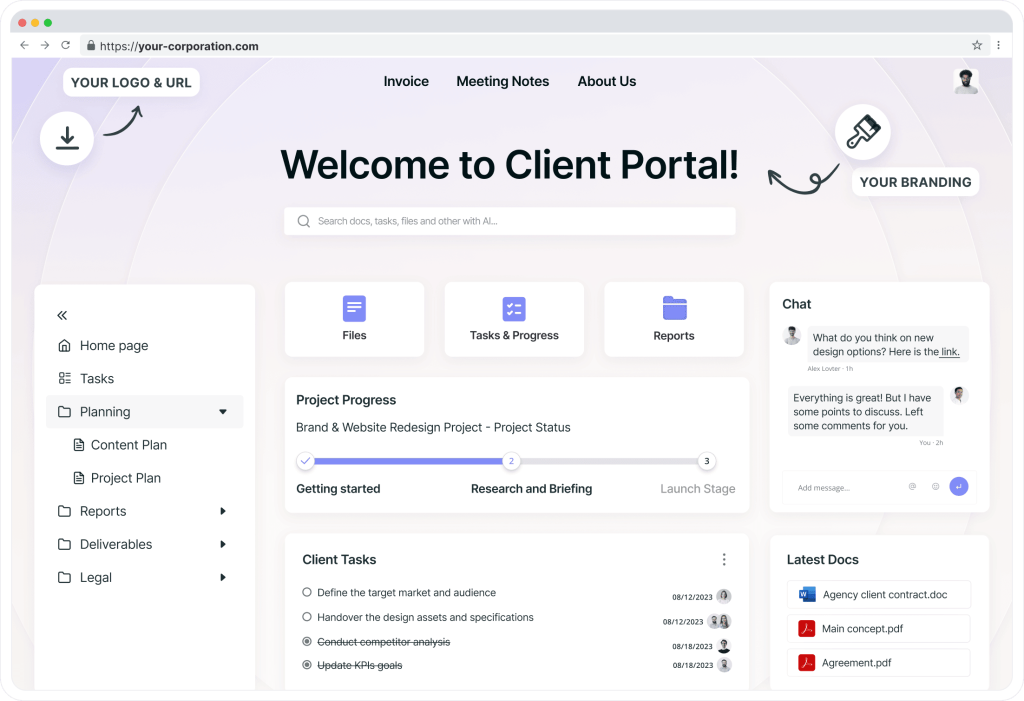
Let’s face it: clients aren’t just a line item on your balance sheet. They’re the lifeblood of your startup, the driving force behind your dreams. And like any relationship worth having, it takes more than just a transaction to make it thrive. It takes rapport.
But what exactly is rapport? Think of it as the secret sauce that transforms a client from a mere customer into a raving fan. It’s the shared understanding, the mutual respect, the unspoken connection that makes collaboration a breeze. It’s the difference between a one-time sale and a long-term partnership.
Why Proper Communication is Important in Client Relationships
Communication isn’t just about exchanging words; it’s the lifeblood of any successful client relationship. For startups, where every client interaction can significantly impact growth and reputation, mastering the art of communication is paramount. Here’s why:
- Builds Trust and Credibility
When you communicate openly and honestly with your clients, you establish yourself as a trustworthy partner. Regular updates, transparent discussions about challenges, and proactive solutions build confidence and solidify your credibility. This trust is the foundation for long-term relationships and repeat business.
- Manages Expectations
Clear and consistent communication ensures that both you and your client are on the same page regarding project scope, timelines, and deliverables. By setting realistic expectations and communicating any potential roadblocks early on, you avoid misunderstandings and frustration down the line.
- Encourages Collaboration
Effective communication fosters a collaborative environment where both parties feel heard and valued. When clients feel comfortable sharing their ideas, concerns, and feedback, it opens the door to creative solutions and mutually beneficial outcomes.
- Strengthens Problem-Solving
Challenges are inevitable in any project, but open communication can turn obstacles into opportunities. By addressing issues head-on and working together to find solutions, you demonstrate your commitment to your client’s success and build a stronger, more resilient relationship.
- Boosts Client Satisfaction
Clients’ satisfaction levels soar when they feel informed, involved, and appreciated. This leads to repeat business and generates positive word-of-mouth recommendations, attracting new clients and fueling your startup’s growth.
3 Signs You Need To Improve Client Communication Strategies
Misunderstandings and Mishaps
If your project timelines are constantly being blown, deliverables are missing the mark, or clients express confusion about project scope, your communication strategies might need a tune-up. Misunderstandings often stem from a lack of clarity or misaligned expectations, both of which can be resolved with more effective communication.
Radio Silence from Clients
It could be a red flag if your clients are going MIA, not responding to emails, or seem disengaged. Perhaps they feel uninformed about project progress or haven’t been given the opportunity to voice their concerns. Proactive communication, regular updates, and soliciting feedback can help re-engage clients and make them feel like valued partners.
Negative Feedback and Churn
If you’re receiving negative feedback or experiencing a high rate of client churn, it’s time to examine your communication practices. Unhappy clients are often the result of poor communication, whether it’s a lack of transparency, responsiveness, or simply not feeling heard. By prioritizing open and honest communication, you can address issues before they escalate and build stronger, more resilient relationships.
How to Make Client Collaboration Effective
So, how do you build rapport with your clients? It’s not rocket science but requires a conscious effort and a genuine desire to connect. Here are a few tips to get you started:
Tip №1: Listen Like You Mean It
We all love to talk about ourselves, but active listening is your superpower when it comes to building rapport. Pay attention to what your clients are saying, ask insightful questions, and show genuine interest in their needs and challenges. By truly hearing them, you’ll gain valuable insights that will inform your approach and strengthen the relationship.
Tip №2: Speak to Clients Often
Open, honest, and transparent communication is the foundation of any healthy relationship, including the one you have with your clients. Keep them in the loop with regular updates, be proactive about addressing any concerns, and don’t be afraid to ask for feedback. By fostering a culture of open communication, you’ll build trust, reduce misunderstandings, and create a collaborative environment where everyone feels heard and valued.
Tip №3: Go the Extra Mile
In a world of mediocrity, exceptional service stands out. Surprise your clients with unexpected gestures, go above and beyond to meet their needs, and always strive to exceed their expectations. By consistently delivering outstanding service, you’ll earn their loyalty and enthusiastic referrals.
Tip №4: Celebrate Successes Together
Don’t just focus on the wins for your startup; celebrate your clients’ successes as well. Acknowledge their achievements, big or small, and let them know you’re invested in their success. Sharing in their triumphs will strengthen the bond and create a sense of shared purpose.
Tip №5: Personalize the Experience
Your clients are not just numbers but individuals with unique personalities, preferences, and needs. Take the time to get to know them on a personal level, tailor your communication to their style, and create personalized experiences that make them feel valued and appreciated.
Tip №6: Embrace Transparency
Honesty is the cornerstone of trust and the foundation of any lasting client relationship. Be upfront about timelines, potential challenges, and any unexpected roadblocks. When things go wrong (and they inevitably will), own up to it, offer solutions, and communicate clearly and consistently. This transparency shows your clients that you’re not just a vendor but a partner who is truly invested in their success.
Tip №7: Be a Problem Solver, Not Just a Service Provider
Don’t just deliver what’s asked for; strive to understand the underlying problem your client is trying to solve. Ask probing questions, offer creative solutions, and think outside the box. By positioning yourself as a strategic problem solver, you add tremendous value to the relationship and become an indispensable asset to your client’s business.
Tip №8: Invest in Your Clients’ Growth
Show your clients that you’re not just in it for the transaction but that you genuinely care about their long-term success. Offer valuable insights, share industry knowledge, and connect them with resources that can help them grow and evolve. By investing in their success, you’ll not only strengthen the relationship but also create a powerful advocate for your brand.
Tip №9: Show Your Appreciation
A little gratitude goes a long way. Regularly express your appreciation for your client’s business, whether it’s a simple thank-you note or a thoughtful gift. Recognizing their value and expressing your gratitude reinforces the positive aspects of the relationship and creates a sense of reciprocity.
Tip №10: Be Human, Not Just a Business
Behind every client is a person with dreams, aspirations, and challenges. Share your own story, show your personality, and connect on a human level. Being authentic and relatable will create a deeper connection with your clients, turning a business transaction into a meaningful relationship.
How to Boost Client Engagement with Client Portals
Client portals are a game-changer when it comes to building strong and lasting relationships with your customers. They provide a centralized hub for communication, collaboration, and project management, enhancing transparency and ensuring everyone is on the same page. Let’s explore some top-notch project management software options that offer robust client portal features to elevate your client engagement:
monday.com

Monday.com’s client portals foster seamless collaboration by allowing clients to actively participate in the project management process. They can easily track progress, provide feedback, and access relevant documents, all within a user-friendly interface.
ClickUp

ClickUp’s client portals are designed to streamline communication and enhance productivity. Clients can access project updates, view task statuses, and leave comments in real time. This direct line of communication minimizes delays, resolves issues promptly, and strengthens the overall client experience.
Notion

While Notion offers a flexible and customizable workspace, its client portal functionality might not be as robust as other options. Although you can create tailored environments for clients, integrating project documentation and communication channels, the platform’s primary focus is internal team collaboration rather than external client engagement.
FuseBase

FuseBase is a powerful tool designed to streamline communication and collaboration between startups and their clients. It offers a suite of features that can help you build stronger relationships, avoid misunderstandings, and ultimately drive greater success for your business.
FuseBase provides a single platform for client communication, eliminating the need to manage multiple emails, chat threads, and documents. Create dedicated workspaces for each client where you can share documents, track progress, and collaborate on projects in real-time.
Conclusion
Building rapport with clients isn’t just about closing deals; it’s about fostering trust, collaboration, and mutual success. By implementing these ten communication tips, startups can create a solid foundation for lasting relationships that drive growth and loyalty.
Remember, effective communication isn’t a one-size-fits-all approach. It requires a genuine desire to understand your clients, adapt your communication style, and go the extra mile to exceed their expectations. By prioritizing open communication, transparency, and collaboration, you can build a thriving network of clients who become true partners in your startup’s journey.
